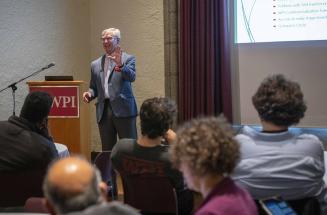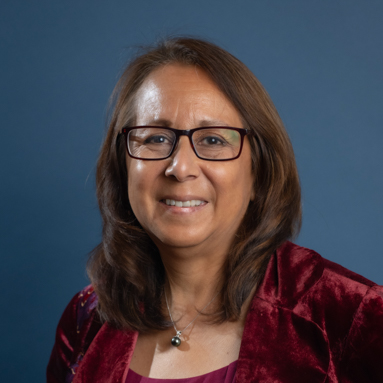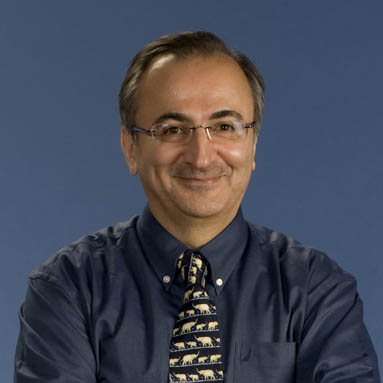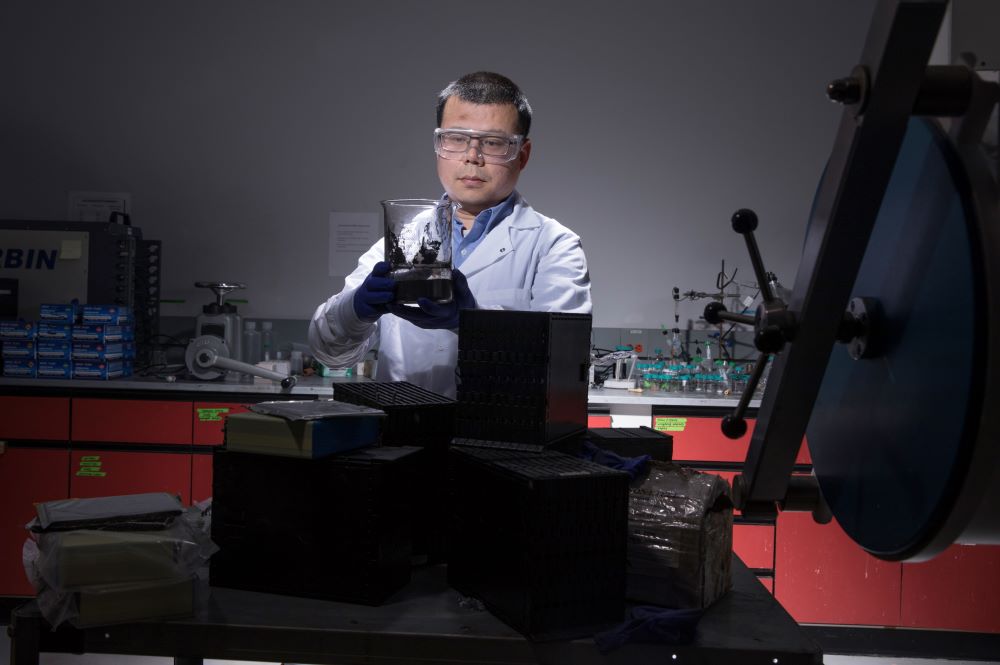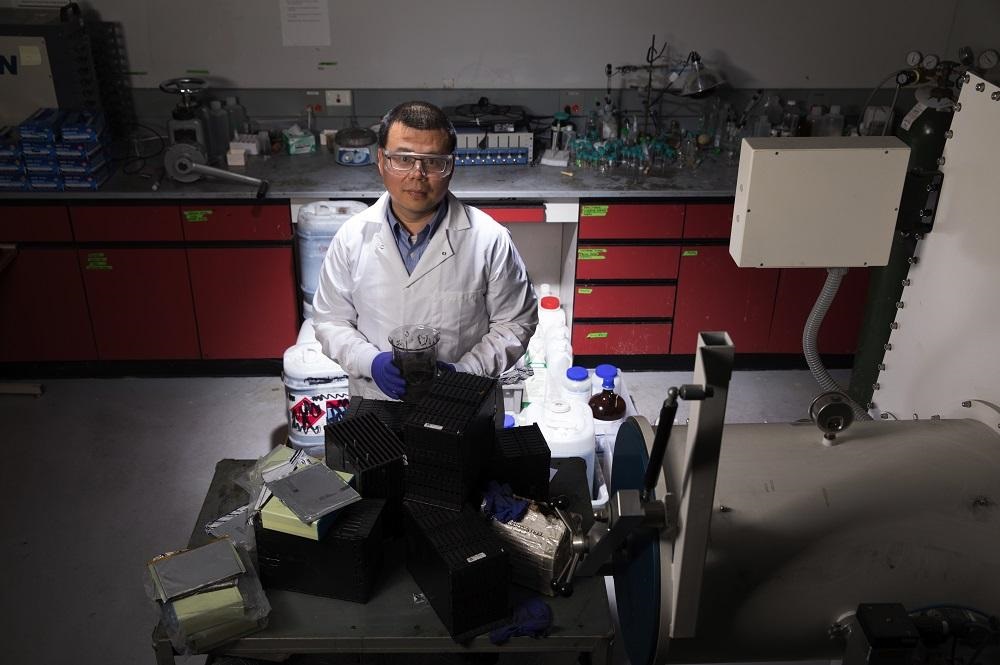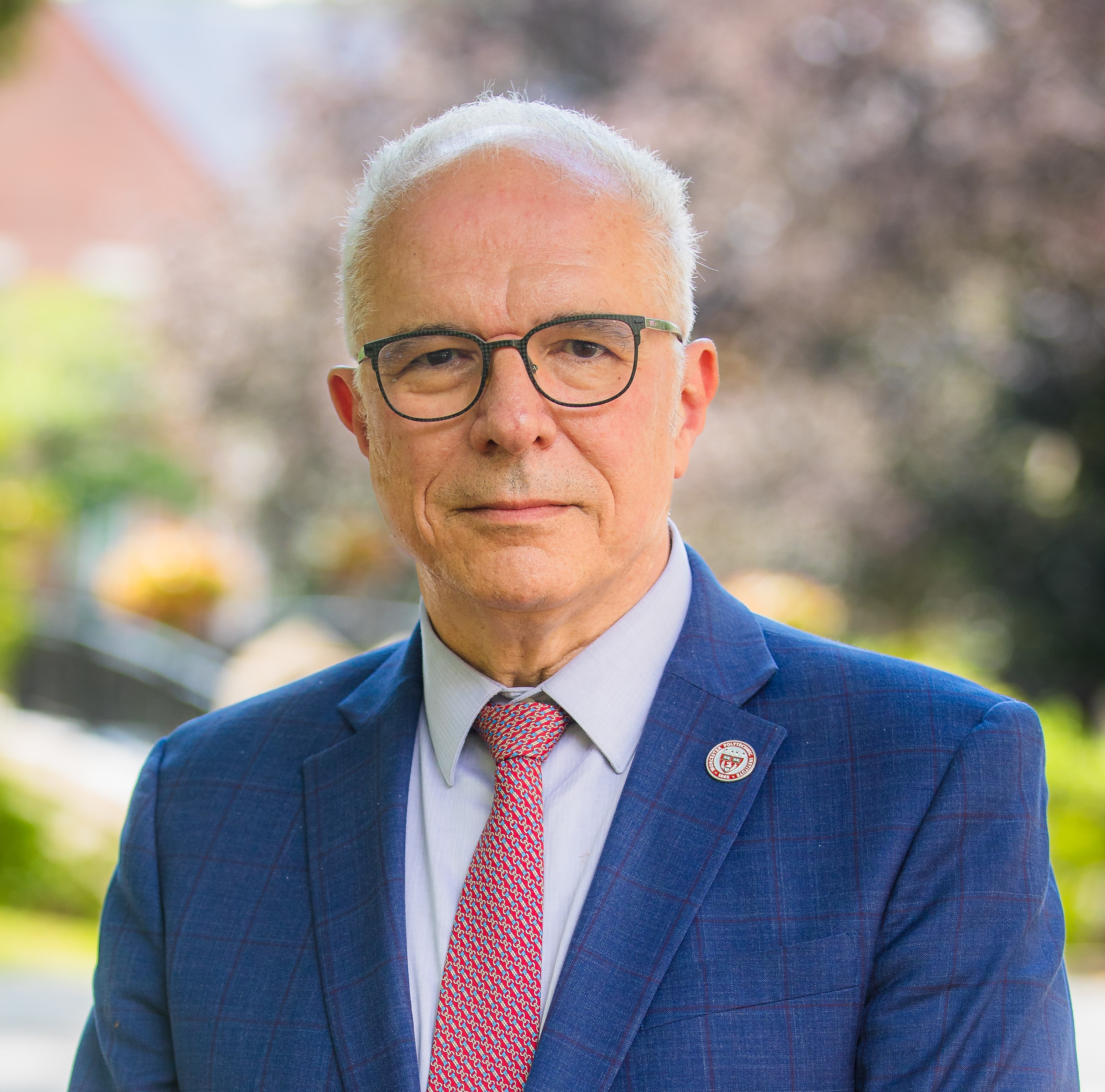When Todd Keiller arrived at WPI in 2012 to lead the office that patents and licenses researchers’ inventions, the university had no active license agreements in place.
Now, as Keiller retires from his job as director of the Office of Technology Commercialization (OTC), WPI can count more than 60 active licenses and nearly two dozen start-up companies that have launched with unique technologies invented by faculty and students. Together, those businesses have hired more than 500 employees and raised more than $1 billion in capital for the development of the technology they licensed from the university.
“WPI has an ecosystem that encourages innovative thinking, ranging from the value creation mindset encouraged by the Center for Innovation & Entrepreneurship to the start-up incubation activities at The Business School’s Business Development Lab,” Keiller says. “It has been incredibly satisfying over the last 11 years to be part of that ecosystem and work with all the faculty and students who have come forward with ideas for inventions.”
WPI faculty and students have long turned their minds to inventing, and the technologies patented and licensed over the last decade range from medical devices to inventions focused on environmental sustainability:
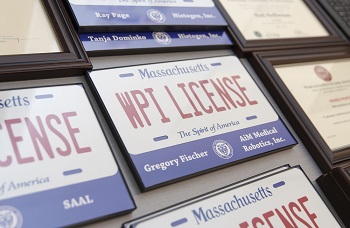
- A lithium-ion battery recycling process invented by Yan Wang, William B. Smith Professor in the Department of Mechanical and Materials Engineering, to address the glut of discarded batteries in the waste stream. Wang’s invention was licensed to a WPI start-up company in 2016 that became Ascend Elements, which has raised more than $1 billion in capital.
- A surgical robot that works in an MRI machine was invented by Gregory Fischer, professor in the Department of Robotics Engineering, and licensed in 2018 to AiM Medical Robotics, a company that Fischer co-founded.
- A commercial drying process invented by Professor Jamal Yagoobi in the Department of Mechanical and Materials Engineering to turn food waste into feed for livestock was licensed in 2022 to Bright Feeds, a food waste recycler.
“The growth of the purpose-driven research done at WPI in the last decade has generated new technologies, and Todd has been instrumental in working with faculty and students to support the transfer of these technologies to start-ups and to well established companies,” says Bogdan Vernescu, vice provost for research. “Due to Todd and his team’s efforts in supporting faculty, we have significantly increased the impact of our researchers’ discoveries and our reputation as an innovative research university.”
